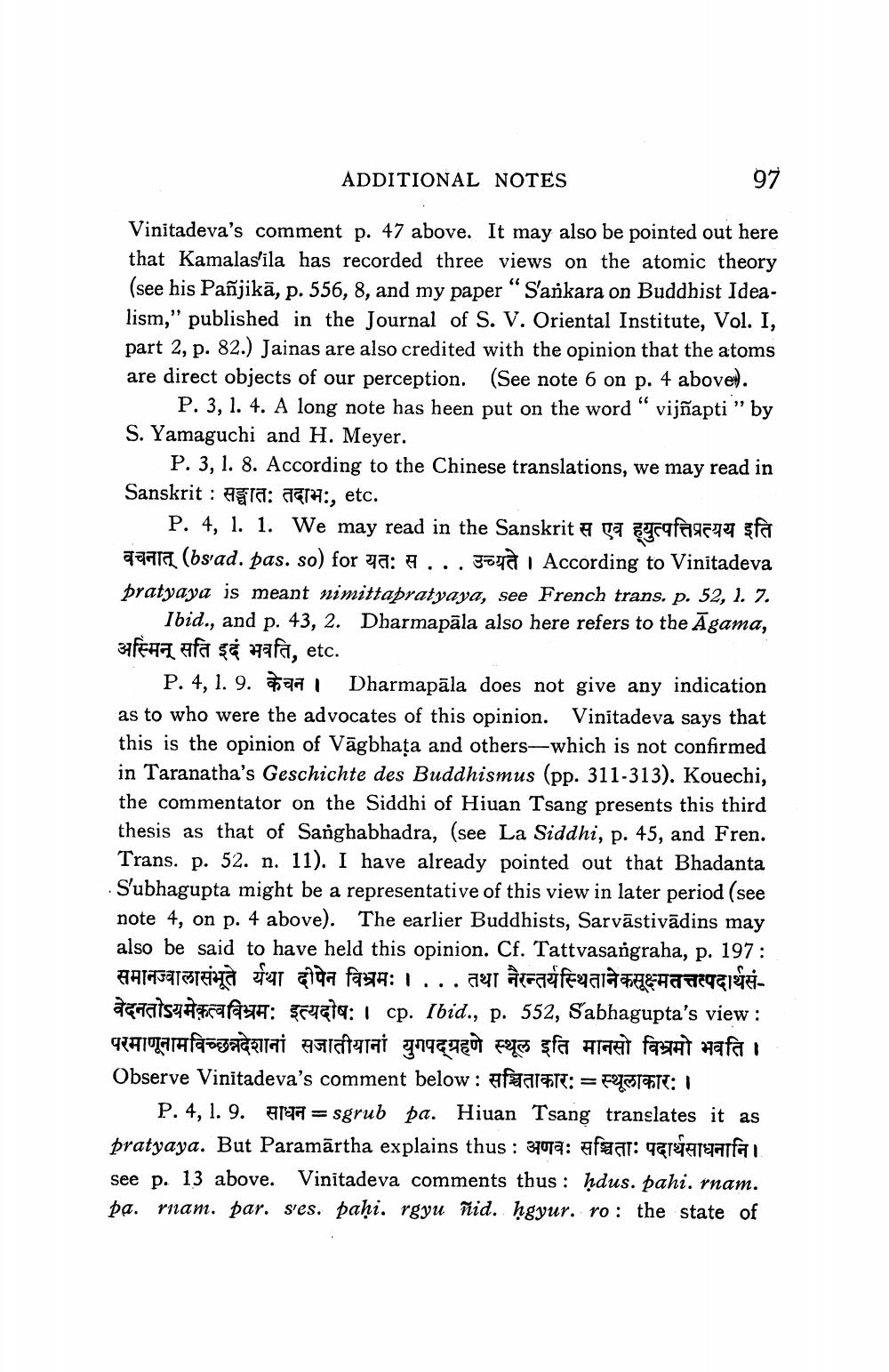________________
97
Vinitadeva's comment p. 47 above. It may also be pointed out here that Kamalas'ila has recorded three views on the atomic theory (see his Pañjikā, p. 556, 8, and my paper "Sankara on Buddhist Idealism," published in the Journal of S. V. Oriental Institute, Vol. I, part 2, p. 82.) Jainas are also credited with the opinion that the atoms are direct objects of our perception. (See note 6 on p. 4 above).
P. 3, 1. 4. A long note has heen put on the word "vijñapti " by S. Yamaguchi and H. Meyer.
P. 3, 1. 8. According to the Chinese translations, we may read in Sanskrit : सङ्घातः तदाभ:, etc.
P. 4, 1. 1. We may read in the Sanskrit स एव ह्युत्पत्तिप्रत्यय इति
ADDITIONAL NOTES
(bsad. pas. so) for : . . . उच्यते । According to Vinitadeva pratyaya is meant nimittapratyaya, see French trans. p. 52, 1. 7. Ibid., and p. 43, 2. Dharmapala also here refers to the Agama, अस्मिन् सति इदं भवति, etc.
P. 4, 1. 9. केचन ।
Dharmapāla does not give any indication as to who were the advocates of this opinion. Vinitadeva says that this is the opinion of Vagbhața and others-which is not confirmed in Taranatha's Geschichte des Buddhismus (pp. 311-313). Kouechi, the commentator on the Siddhi of Hiuan Tsang presents this third thesis as that of Sanghabhadra, (see La Siddhi, p. 45, and Fren. Trans. p. 52. n. 11). I have already pointed out that Bhadanta Subhagupta might be a representative of this view in later period (see note 4, on p. 4 above). The earlier Buddhists, Sarvästivādins may also be said to have held this opinion. Cf. Tattvasangraha, p. 197: समानज्वालासंभूते र्यथा दीपेन विभ्रमः । ... तथा नैरन्तर्यस्थिताने कसूक्ष्मतत्तत्पदार्थसंatsafa: st: cp. Ibid., p. 552, Sabhagupta's view: परमाणूनामविच्छन्नदेशानां सजातीयानां युगपद्ग्रहणे स्थूल इति मानसो विभ्रमो भवति । Observe Vinitadeva's comment below : सञ्चिताकार: = स्थूलाकारः ।
P. 4, 1. 9. rsgrub pa. Hiuan Tsang translates it as pratyaya. But Paramārtha explains thus : अणवः सञ्चिताः पदार्थसाधनानि । see p. 13 above. Vinitadeva comments thus: hdus. pahi. rnam. pa. rnam. par. s'es. pahi. rgyu ñid. hgyur. ro: the state of




